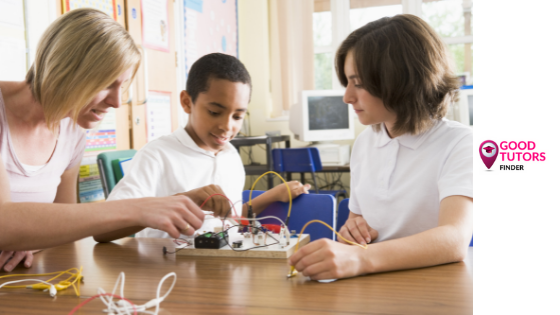Tips to Learn Science
Greater understanding of our brain’s functioning, abilities, and limitations allows us to constantly improve our learning skills.
This article shares some of the most significant breakthroughs that recent research has made on the science of learning, providing valuable insights on how to make the best use of your brain without wasting energy.
8 critical discoveries about learning
The brain is perhaps the most mysterious of our organs. And for a long time, we’ve really misunderstood what it is and how it works.
We’re still a really long way from understanding everything about it, but we’ve made a ton of really important breakthroughs in the past few decades. This is especially true for learning: we now have a much better understanding of how we learn, organize, remember, and retrieve information.
Let’s explore what we know about how students learn so that you can design your students (or yourself) the most effective study program:
1. More information doesn’t mean more learning
Processing information takes resources. That means that the brain has to do work to understand. This is the reason you can’t simply present more information to your students and expect there to be a corresponding linear increase in learning.
Brain scientists refer to the point at which a person’s brain becomes overwhelmed by new information as “cognitive overload”. Too much new information results in cognitive overload, and this ultimately reduces learning.
How can you reduce cognitive overload? There are two main ways.
- The quantitative method. Here, you simply provide less new information. You allow students to understand most of what they learn before presenting new information.
- The qualitative method. Here, you change the way you present it so that it is less overwhelming.
2. Emotions influence the ability to learn
Learning is affected by a number of things. It’s not just about how smart someone is, but also how they feel. Research demonstrates that our emotions affect everything from how we perceive information, how we pay attention to it, the way we remember it, and how we solve problems. This is especially true for children, who are less able to regulate their emotions.
The worst emotional states for learning are feeling anxious, stressed, ashamed, or fearful. These emotions activate the limbic system. Activation of the limbic system seems to interfere with how memory is generated. This is why we develop trust with children and create safe learning environments. It doesn’t just make kids feel more comfortable, it also helps them learn better.
3. Mistakes are an essential part of learning
No one aims for failure. It’s something we generally want to avoid. Certainly, as a teacher, you’re hoping all of your students pass their exams. But the science of learning is showing us that making mistakes is actually essential for learning. We don’t all learn to ride a bike the very first time we get on it—we get better with practice. It’s the same with academic subjects: making mistakes is essential to the learning process.
Not only that, but the pressure to succeed may inhibit learning. Some research finds that students actually learn and perform better when they are told that failure is a normal and expected part of learning. Part of this may be that feeling less pressure leads to better performance. Another part may be that when we emphasize errors, students focus on those errors rather than focusing on what they should be learning.
4. The brain needs novelty
Boredom may not actually kill your students, but it can kill their attention and willpower to learn. As teachers, we often repeat material because we know that “practice makes perfect” (or, as I am more fond of saying, “practice makes progress”).
But it turns out that what the brain really craves is novelty. Novelty—being exposed to new ideas and things—releases dopamine, which is a neurochemical that’s part of the pleasure center of our brains. We find it rewarding. Dopamine turns out to play a huge role in motivation for learning. That’s not to say we shouldn’t get our students to practice the same things, but doing that practice in new ways can improve learning outcomes.
5. Learning styles do not matter as much as we thought
You’ll remember all that stuff about visual, auditory, and kinesthetic learning. You probably have even participated in an activity or test that was supposed to “diagnose” your learning style. This idea made sense to us: some people may learn better if they learn in different ways. We’ve held onto this idea for decades.
While it’s true that we have preferences for learning (some people like reading more than listening), it turns out that there’s little evidence for the idea that these preferences lead to better learning. Learning styles just may not work.
That doesn’t mean that all learning activities are created equally. A ton of learning science finds that some techniques are much more effective than others. For example, using active recall, where you reach back into your brain to search for an answer, is much more effective than re-reading, highlighting, concept mapping, or recognition of the right answer in later recall. Similarly, spacing learning out is better for recall than cramming it all in at once (but you knew that).
[ Related article : The Most Effective Way to Study ]
6. Brains operate on the “use it or lose it” principle
This one is related to the brain shifting. It’s constantly building and re-building neural pathways. Those pathways that are used the most often get stronger and more well-established. Those pathways that aren’t used get built over.
This is the reason your French gets rusty when you don’t use it or why it’ll take you a while to work out an algebra problem if you haven’t done one in a while. With the brain, that old saying is true: if you don’t use it, you lose it.
What does that mean for your teaching? It means having your students repeat the material before they forget it.
One of the most important concepts to come out of the science of learning is spaced repetition. Spaced repetition is the idea that you space out learning so that you repeat something just before you would have forgotten it. It’s the best way to optimize learning and remembering. That’s why our flashcards are built on a spaced-repetition algorithm.
7. We learn together—it's social
It’s true that some students do prefer to sit closed off in a quiet corner of the library. But the majority of people actually learn much better when that learning is done through social interaction.
Collaborating with peers turns out to lead to much better learning outcomes. This is reflected in brain imaging studies as well: when information is presented by other people in a multi-sensory way, neuroimages show a number of neural networks functioning together at the same time. Still other research finds that we learn information very effectively through social cues like recalling the words of others or emulating their actions.
8. Learning happens best through teaching
If you’re a teacher, you’ll be familiar with this: you never understand something as well as after having taught it. There’s actually some research for this: teaching others is one of the most effective study methods.
This suggests that to learn something new or study for an exam, students take their subject, and then write about it as if they were teaching someone else—even a child. Figuring out how to explain something complex using simple, non-jargon language, and briefly, consolidates the learning that’s already there and identifies gaps in knowledge.
Understanding how students learn is one of the most important ways to ensure that their learning is effective. It can keep you focused on what activities will really enhance learning, and what activities may not have much benefit at all.
If you would still like to provide your child with a trained tutor after school who can help with structure and organization, we have just what you need. At Good Tutors Finder, we only have hand-picked tutors who are well versed in these and other strategies and can apply them, whether they are in IB Diploma, IGCSE, AP, or lower grades. Mathematics, Science, Physics, German, French, English, and more, no matter which subject is difficult, our tutors can help out.
Our tutors are available everywhere in Switzerland, including Zurich, Basel, Bern, Zug, Geneva, Lausanne, and all other cities.
Find out more and book your tutor today!




